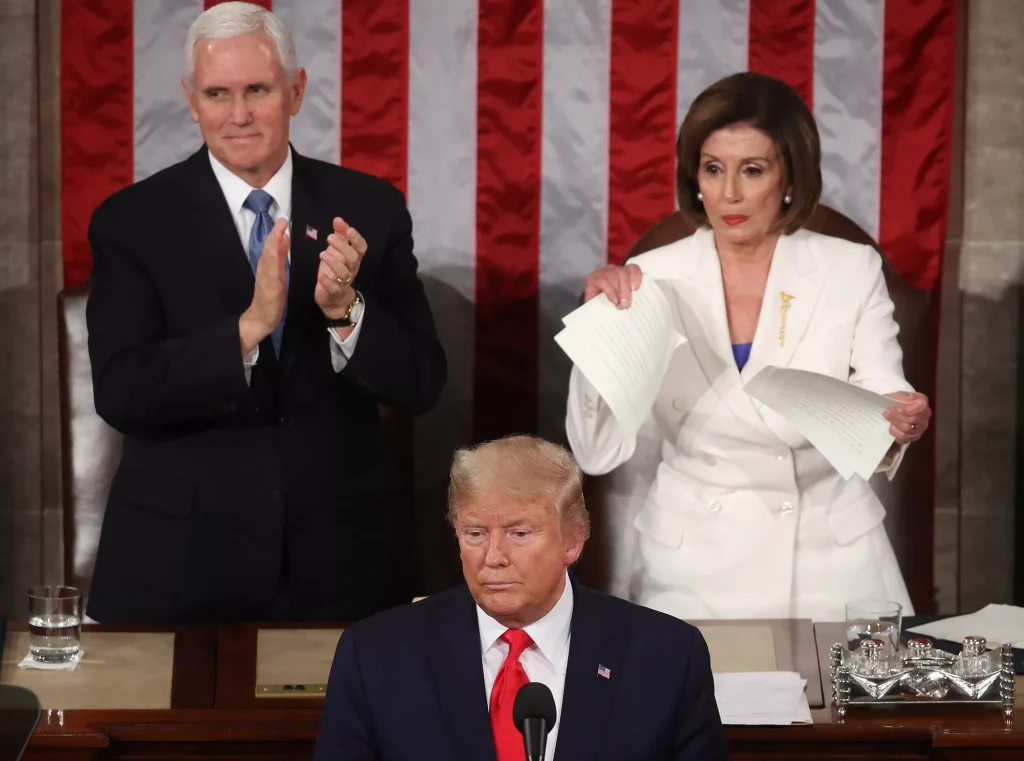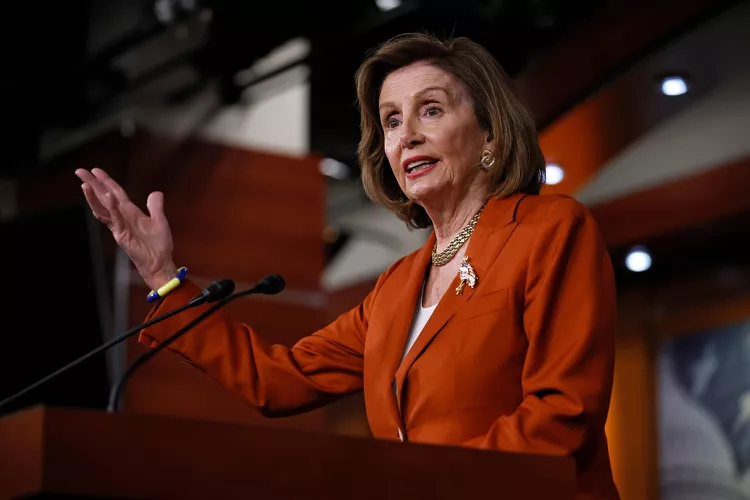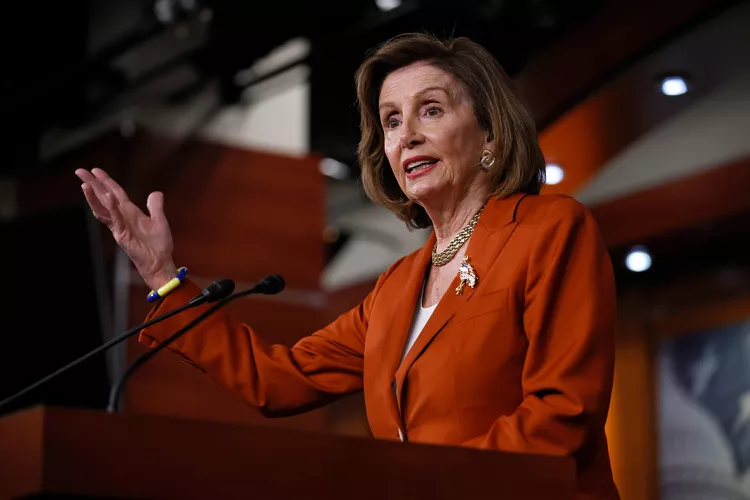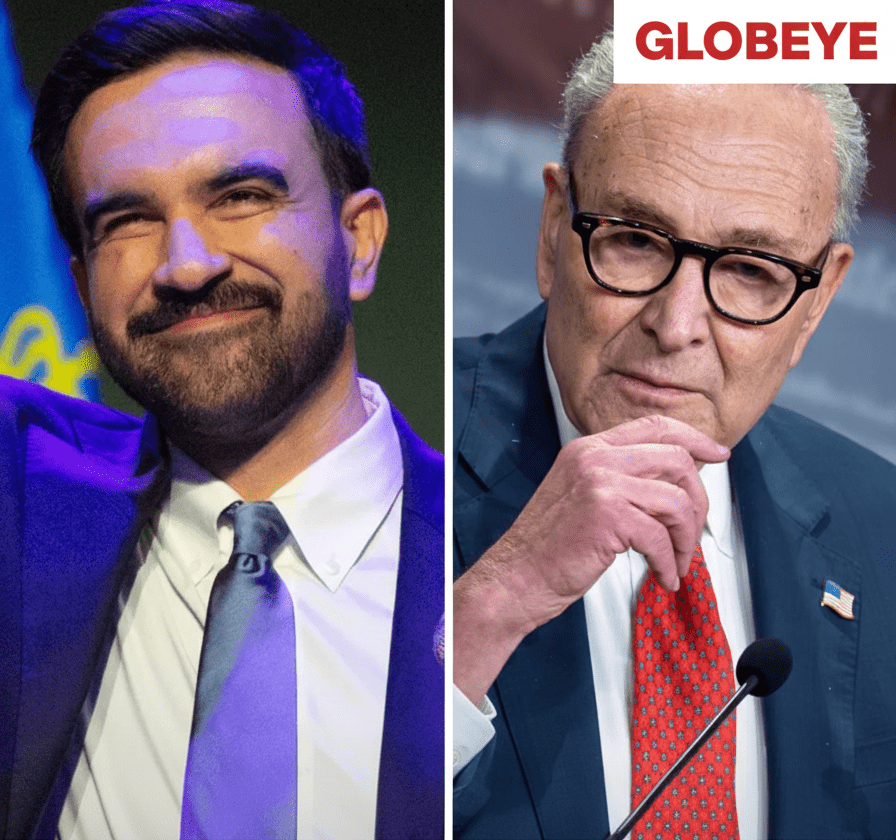Nancy Pelosi Announces Her Retirement from Congress After Four Decades of Power, Progress, and Political Legacy in the U.S. House of Representatives
Nancy Pelosi’s storied political career is coming to an end. The former Speaker of the House — and still the only woman to ever hold that position — announced on Thursday, November 6, that she will not seek reelection in 2026. With that, she is closing the book on one of the most remarkable and influential careers in modern American politics — a journey that spanned forty years, shaped major legislation, broke countless barriers, and redefined what leadership looks like in Washington.

Standing before cameras in San Francisco, the city she has represented since 1987, Pelosi’s tone was reflective yet resolute. “With a grateful heart, I look forward to my final year of service as your representative,” she said, her signature poise unshaken. It was a moment both expected and emotional — the quiet conclusion to a political life that has left a permanent mark on the U.S. Capitol.
Pelosi’s rise from the daughter of a Baltimore mayor to one of the most powerful figures in the world was not sudden. She was first elected to Congress in a 1987 special election, succeeding the late Sala Burton. At the time, few could have predicted the trajectory she would take. She entered the House as a newcomer from California’s 5th District and gradually built a reputation as a tireless worker, fierce fundraiser, and savvy political strategist.
By 2002, Pelosi had become the first woman to lead a major political party in Congress when she was chosen as House Minority Leader. Five years later, in 2007, she shattered another ceiling — becoming the first woman in U.S. history to serve as Speaker of the House. Her gavel symbolized more than a title; it represented generations of women who had fought to be seen and heard in rooms of power long dominated by men.
As Speaker, Pelosi’s fingerprints can be found on nearly every major legislative battle of the past two decades. She presided over the passage of the Affordable Care Act, led efforts to stabilize the economy after the 2008 financial crisis, and worked through some of the most divisive political moments in American history. Her ability to manage a fractured Democratic caucus became legendary — a skill rooted in discipline, negotiation, and a deep understanding of how power operates in Washington.

Her leadership was tested repeatedly. She faced a Republican president determined to challenge her authority, two impeachments of Donald Trump, and the traumatic January 6 attack on the U.S. Capitol. Through it all, Pelosi maintained an image of control — never losing sight of the message or the mission. Her fiery moment in 2020, when she tore up Trump’s State of the Union speech on live television, became one of the defining images of her tenure.
But her career was never about theatrics alone. Pelosi’s legislative record stands as one of the most significant in modern times. She helped guide major climate legislation, expanded healthcare protections, secured pandemic relief funding, and played a key role in advancing LGBTQ+ rights. Her colleagues — even her fiercest critics — often acknowledged her unmatched understanding of the House’s inner workings. She was not just a leader; she was an operator who knew how to count votes, craft alliances, and make difficult deals.
Throughout her career, Pelosi was also a polarizing figure. To conservatives, she embodied the liberal establishment — a San Francisco power broker who symbolized the Democratic elite. Her name became a rallying cry for Republican campaigns nationwide. But to Democrats, she was the backbone of the party, the steady hand that could manage chaos and deliver results when others faltered. Even many of her critics quietly respected her strategic genius and endurance.
Her retirement announcement signals the end of a chapter not just for her district, but for Congress itself. At 85, Pelosi’s departure also mirrors a larger generational shift inside the Democratic Party. For years, younger lawmakers have called for new leadership and fresh perspectives to meet the challenges of a changing electorate. With her exit, Pelosi leaves a void — one that will be difficult, if not impossible, to fill.
Pelosi’s life in public service was shaped by her upbringing. Born in Baltimore in 1940, she grew up in a political household where civic duty was second nature. Her father, Thomas D’Alesandro Jr., served as both a congressman and mayor, instilling in her an early understanding of political power. After moving to San Francisco with her husband, Paul Pelosi, she became involved in local politics, volunteering for Democratic causes and fundraising for candidates. That grassroots experience — and her deep connections to the community — later became her foundation for national influence.

Over the years, Pelosi’s name became synonymous with breaking barriers. She not only redefined what it meant to lead as a woman in Washington, but also paved the way for future generations of women in politics. Her advice to young women in public service — “Know your power” — became a rallying cry for empowerment.
While her accomplishments are numerous, Pelosi’s career also carried moments of personal challenge. The violent attack on her husband in 2022 brought national attention to the growing hostility and threats faced by public officials. She balanced her duties while standing beside her family, showing the resilience that had long defined her. Even as she faced criticism and political backlash, Pelosi remained grounded in her sense of duty and faith.
Her departure announcement was delivered without fanfare, but the impact was immediate. Across the political spectrum, tributes poured in. President Biden called her “the most consequential Speaker in American history.” Former President Obama praised her as “a once-in-a-generation leader.” Even opponents like Senator Mitch McConnell acknowledged her influence, saying, “No one can deny the force she has been in shaping policy and politics.”
In truth, Pelosi’s leadership was never about being liked — it was about being effective. She often described politics as “the art of the possible,” a philosophy that guided her through turbulent times. Whether negotiating trillion-dollar budgets or rallying her caucus behind controversial bills, she approached every challenge with discipline and calculation. Behind her calm demeanor was a political tactician unmatched in her generation.
Now, as she prepares to step down, questions naturally arise about her legacy. Will history remember her as a symbol of progress or as a polarizing force? Perhaps both. Her name will forever be tied to the landmark legislation she helped deliver and to the fiery political battles she led. But beyond the partisan lens, Pelosi’s story stands as a testament to endurance — the story of a woman who entered Congress when few believed she could rise and who ended up shaping the nation’s legislative destiny for four decades.
Her San Francisco seat, long considered one of the safest Democratic strongholds, will now open the door for a new generation of leadership. The coming months are expected to ignite a competitive race among local Democrats eager to carry her mantle. But for many in her district, Pelosi’s retirement feels deeply personal — the departure of a familiar figure who has been their voice in Washington for most of their lives.
Despite her exit from public office, Pelosi’s influence will continue to ripple across politics. Her fundraising networks, mentorship of younger lawmakers, and imprint on party strategy ensure that her presence won’t disappear overnight. It is possible she will remain an informal adviser, guiding Democrats from behind the scenes as they navigate the challenges of a divided nation.
As she closes this chapter, Pelosi leaves behind a trail of firsts: the first woman Speaker, the first to regain the gavel after losing it, and one of the longest-serving Democratic leaders in U.S. history. Her departure marks the end of an era that began with optimism, was tested by partisanship, and endured through transformation.
Nancy Pelosi’s story is, above all, one of perseverance. She broke ceilings, built bridges, faced storms, and kept walking. She stood in the center of American politics for forty years, commanding both respect and resistance. And now, she steps aside on her own terms — not defeated, but fulfilled. Her career reminds the country that leadership is not defined by popularity, but by persistence.
As she said in her farewell: “We have made history. We have made progress. Now we must continue to do so by remaining full participants in our democracy.” For Pelosi, those words are not just a goodbye — they are a challenge to the next generation.
Her time in Congress may soon end, but her imprint will endure in every woman who dares to lead, in every young lawmaker who refuses to back down, and in every citizen who still believes that politics, even with all its flaws, can be a force for good.



